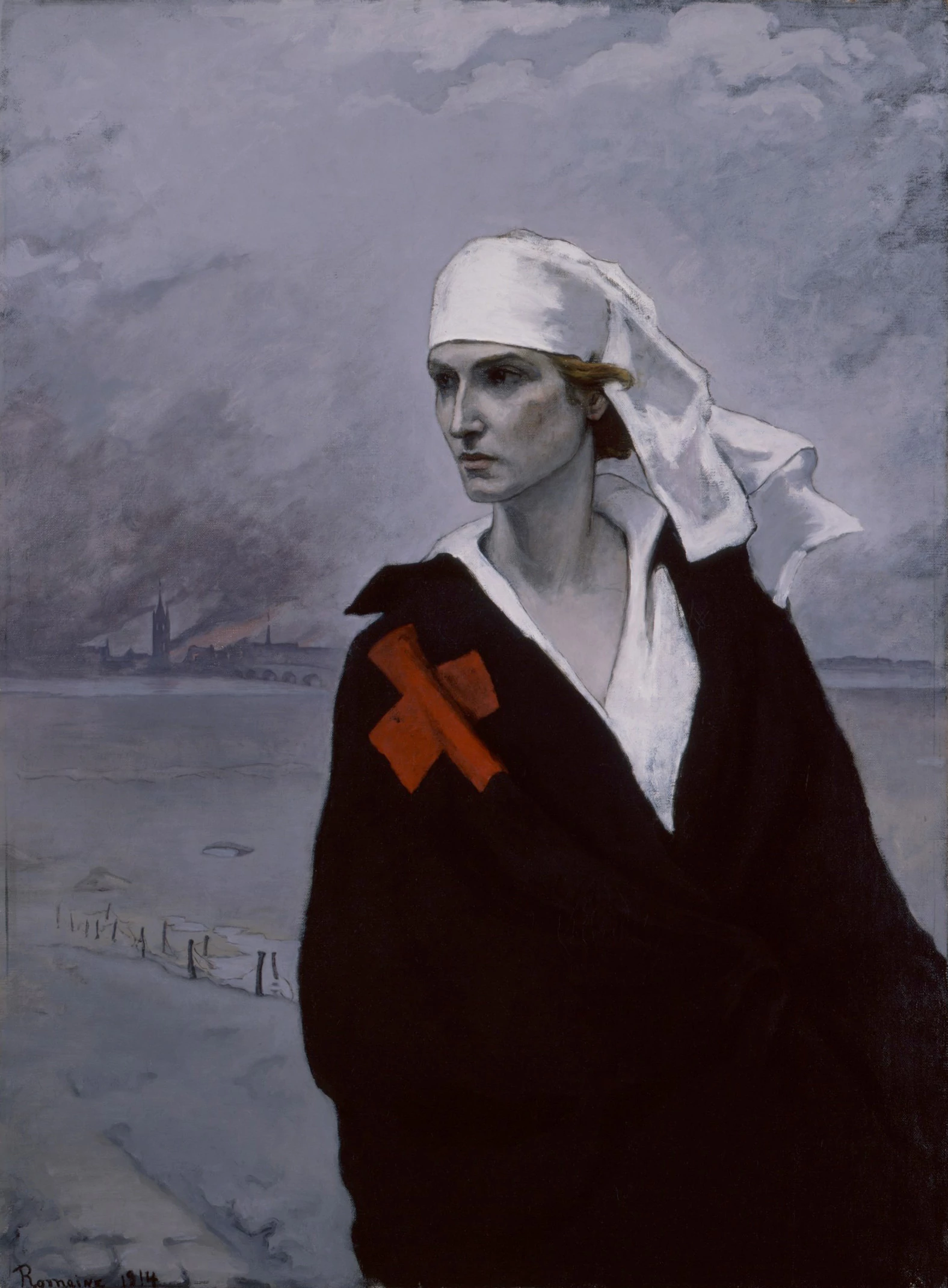

Romaine Brooks
Powerful women in shades of gray
1874 – 1970It so happens every now and then that there appears one’s horizon some person who assumes the double role of friend and tale-bearer. I remember, all but her name a grey-haired, chinless Anglo-Saxon spinster who pretended to admire my work but who really came to see me in order to bring as much unpleasant outside gossip as was possible. Through her I knew that a certain group of worldly people with whom I had found no affinity were greatly shocked by my choice of friends. This seemed too absurd even to argue about, but it did affect me and in the following way.
It was my very bad habit to reserve one afternoon a week for receiving my acquaintances. Why I imposed upon myself this drudgery remains a mystery. Besides it was all so very one-sided: I to bring to these people my spontaneous good-will; my art which led even to painting their portraits and, what they certainly appreciated far more, the wherewithal to feed their idle curiosity; while on the other hand, they bring to me nothing but their unfriendly, inquisitive and mischievous selves. After hearing over-much gossip I decided to discontinue these receptions. I wrote to no one but on the given day and hour I gave orders to the butler to explain to the visitors that I was not receiving. Then I retired to read quietly in my library which was directly over the reception rooms. To my surprise at the usual hour the hum of voices and the treed of feet could be heard in the rooms below. After some time when all was quiet again I questioned the butler. “They would come in” he declared, “though I told them Madame was not receiving". When I questioned him as to what all the talking was about he looked uncomfortable and then answered that he thought they were counting the works of art and the furniture. No further enlightenment could I got from him. Om my questioning the maid as to what he meant, she, more courageous, answered: “They were looking to see if Madame had sold her things to pay up Monsieur d'Annunzio’s debts". Monsieur d'Annunzio’s debts indeed!
I recalled his attitude on the one occasion I was really able to help him. His collection of books was to be sold in Italy. I wrote and offered to save them but on condition that my name should not be revealed. But d'Annunzio found it out, and then, very much against my will, he made me conduct him to my lawyers where signed a document to the effect that a certain percentage of the income derived from h!s works should be paid to me until the borrowed sum were fully reimbursed.
I never think of d'Annunzio without feeling deepest gratitude. His vitality, his enthusiasm brought to me the aspiring note which I had lost in my self—imposed effort to conform to a new and incompatible mode of life.
After painting his portrait I saw less of him. Ho was living and working hard and I was painting Ida Rubinstein and passing much of my time with her. But my attachment to him was strong and I think he appreciated its friendly quality which so few woman had to offer him. This friendship varied slightly only when in his lest metamorphosis the “lepida", the exiled poet, emerged as a great leader, a loudly acclaimed National hero.
Who can hope to attack effectively what indifference has made invincible?